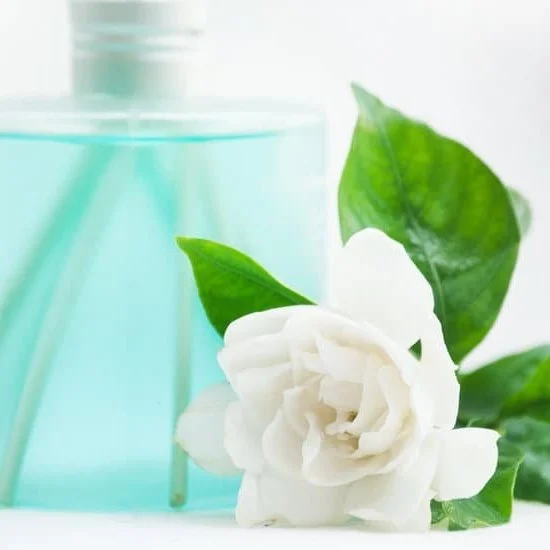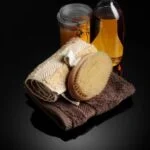Aromatherapy has gained significant popularity as a holistic healing method, and essential oils play a crucial role in maximizing its benefits. This introductory section will provide an overview of aromatherapy and highlight the numerous advantages of using essential oils in this practice.
Aromatherapy involves the use of aromatic plant extracts, known as essential oils, to promote physical, mental, and emotional well-being. These concentrated oils are derived from various parts of plants through processes such as distillation or cold-pressing. One of the key reasons for the growing popularity of aromatherapy is its ability to stimulate the olfactory system, triggering powerful responses in the brain that can positively impact mood, emotions, and overall health.
There are countless benefits associated with using essential oils in aromatherapy. Firstly, these oils have distinct therapeutic properties that can address different ailments or concerns. For instance, some oils are known for their soothing and calming effects, while others possess uplifting or energizing qualities.
Additionally, essential oils can also possess antibacterial or antiseptic properties, making them suitable for skincare or cleaning purposes. By understanding the unique properties of various essential oils, individuals can customize their aromatherapy practices to address specific needs or preferences.
Understanding the Different Types of Essential Oils
Essential oils are the backbone of aromatherapy, providing unique scents and therapeutic properties that cater to various needs. Understanding the different types of essential oils is essential for harnessing their benefits effectively.
The Process of Extracting Essential Oils
Before delving into the different types of essential oils, it is crucial to understand how they are extracted from plants. Essential oils are typically obtained through steam distillation or cold pressing methods, depending on the plant part used. Steam distillation involves passing steam through plant material, and the resulting steam-oil mixture is collected and condensed to obtain the essential oil.
Cold pressing, primarily used for extracting citrus essential oils, involves mechanically pressing the peel of fruits to release the aromatic oil. This process ensures that these oils retain their bright and fresh scent.
Varied Categories with Distinct Therapeutic Properties
Essential oils can be classified into different categories based on their therapeutic properties and fragrance families. Some common categories include floral, citrus, woody, herbal, and spicy essential oils. Floral essential oils like rose, jasmine, and ylang-ylang are known for their calming properties and are often used in relaxation blends or skincare products. Citrus essential oils such as lemon, orange, and grapefruit have uplifting properties that can boost mood and alleviate stress.
Woody essential oils like cedarwood and sandalwood provide a grounding effect perfect for meditation or promoting feelings of stability. Herbal essential oils such as lavender and eucalyptus have versatile uses ranging from relaxation to respiratory relief. Lastly, spicy essential oils like cinnamon and clove offer warmth and stimulation.
Main Types of Essential Oils
Within each category mentioned above exist numerous specific types of essential oils that have their own unique properties. Here are some commonly used main types:
- Lavender: Known for its soothing floral scent, lavender is one of the most versatile and widely used essential oils. It is praised for its ability to promote relaxation, aid sleep, reduce anxiety, and relieve headaches. Lavender essential oil also possesses properties that can help soothe minor skin irritations and enhance skin health.
- Citrus Oils: Lemon, orange, grapefruit, and other citrus essential oils are loved for their refreshing and invigorating scents. These oils are excellent mood enhancers that can improve focus and alleviate stress. Additionally, they possess natural antibacterial properties, making them great additions to homemade cleaning products.
- Eucalyptus and Menthol: Eucalyptus and menthol essential oils are known for their respiratory benefits. When used in diffusers or steam inhalations, these oils effectively relieve congestion and support respiratory health. They are also widely used in massage blends for muscle relaxation and pain relief.
- Rosemary and Peppermint: Rosemary and peppermint essential oils have stimulating and refreshing properties that promote mental clarity. These oils can enhance concentration, memory retention, and mental alertness, making them ideal for study or work environments where focus is crucial.
- Tea Tree and Eucalyptus: Tea tree and eucalyptus essential oils possess strong antiseptic and antimicrobial properties. Traditionally used to treat various skin conditions such as acne, cuts, and fungal infections, these oils offer natural alternatives for disinfecting household surfaces.
Understanding the different types of essential oils allows individuals to customize their aromatherapy experiences based on their specific needs. Whether seeking relaxation with lavender or mental clarity with rosemary, there is an essential oil available to suit everyone’s preference. Experimenting with blends of different types of essential oils can unlock a realm of therapeutic possibilities in aromatherapy practice. However, it is important to seek professional advice or guidance when using essential oils for therapeutic purposes to ensure safe usage.
Lavender
The Soothing and Calming Properties of Lavender Essential Oil
One of the most well-known and widely used essential oils in aromatherapy is lavender oil. Known for its soothing and calming properties, lavender essential oil has been used for centuries to promote relaxation, aid sleep, and reduce anxiety.
When inhaled, the aroma of lavender oil acts as a natural sedative, helping to calm the mind and ease stress. Its therapeutic properties make it an excellent choice for those who struggle with insomnia or have difficulty winding down at the end of a long day.
Other Benefits of Lavender Essential Oil
In addition to promoting relaxation, lavender essential oil offers a range of other benefits. It has been found to provide relief from headaches when applied topically or inhaled. Simply massaging a few drops onto the temples can help alleviate tension headaches. The anti-inflammatory properties of lavender oil also make it effective in reducing minor skin irritations such as insect bites or sunburns. By applying diluted lavender oil directly to the affected area, one can experience soothing relief.
How to Use Lavender Essential Oil
There are several ways to incorporate lavender essential oil into your aromatherapy practice. Diffusing a few drops in an essential oil diffuser is an excellent way to enjoy its calming aroma throughout a room. Alternatively, adding a few drops to a warm bath can create a relaxing and aromatic soak. For topical application, it is recommended to dilute lavender oil with a carrier oil like coconut or jojoba oil before applying it directly to the skin.
Lavender essential oil serves as an excellent introduction to the world of aromatherapy due to its versatility and effectiveness in promoting relaxation and reducing anxiety. With its numerous benefits and gentle nature, it is no wonder that lavender essential oil continues to be one of the most popular choices for aromatherapy enthusiasts.
Citrus Essential Oils for Mood Enhancement
Citrus essential oils, such as lemon, orange, and grapefruit, are renowned for their invigorating and uplifting properties when used in aromatherapy. These oils can have a powerful impact on mood and overall well-being.
One of the main benefits of citrus essential oils is their ability to boost mood and alleviate stress. The vibrant and fresh scent of these oils can help uplift the spirits and promote a sense of positivity and optimism.
Citrus essential oils have been found to stimulate the release of certain neurotransmitters in the brain, such as serotonin, which is often referred to as the “feel-good” hormone. By promoting the production of serotonin, citrus essential oils can help improve mood, reduce stress levels, and even alleviate symptoms of depression.
In addition to their mood-enhancing properties, citrus essential oils also possess natural antibacterial properties. This makes them an ideal choice for cleaning products or diffuser blends that can help purify the air in your home or workspace. The antiseptic qualities of citrus essential oils make them effective at killing germs and bacteria while leaving behind a refreshing aroma.
When using citrus essential oils for mood enhancement, there are several methods you can try. One popular option is to use a diffuser to disperse the scent throughout a room.
Simply add a few drops of your preferred citrus oil into the water reservoir of the diffuser and let it run for 30 minutes to an hour. You can also create your own personal inhaler by adding a few drops of citrus oil onto a cotton pad or tissue and inhaling deeply whenever you need a quick pick-me-up.
Overall, citrus essential oils offer a natural and effective way to enhance mood, improve focus, and reduce stress levels. Their versatile nature makes them suitable for various applications, from diffusing in living spaces to incorporating into cleaning routines. Experimenting with different citrus essential oils can help you find the scents that resonate best with your personal preferences and needs.
Eucalyptus and Menthol
When it comes to respiratory health, eucalyptus and menthol essential oils are powerhouse options for providing relief from congestion and promoting clearer breathing. These essential oils offer a range of benefits that can be harnessed through various methods of application.
One notable advantage of eucalyptus essential oil is its cooling and decongestant effects. When used in diffusers or steam inhalations, the oil helps to open up airways and alleviate symptoms of congestion caused by conditions such as colds, allergies, or sinusitis. The refreshing scent of eucalyptus also aids in reducing nasal stuffiness, making it easier to breathe comfortably.
Similarly, menthol essential oil provides respiratory relief by imparting a cooling sensation that helps to soothe irritated airways. This oil can also be utilized in diffusers or steam inhalations for its decongestant properties. Additionally, both eucalyptus and menthol essential oils can be blended into massage oils for muscle relaxation and pain relief, further enhancing their therapeutic potential.
To incorporate eucalyptus and menthol essential oils into your aromatherapy routine, consider adding a few drops to a humidifier or vaporizer for continuous respiratory support throughout the day. Alternatively, you can mix these oils with a carrier oil like coconut or jojoba oil for topical application on the chest area to provide targeted relief from congestion. Always remember to dilute essential oils properly before applying them topically.
In summary, eucalyptus and menthol essential oils are valuable tools for relieving respiratory discomfort and improving overall respiratory health. Whether used in diffusers, steam inhalations, or as part of massage blends, these oils offer cooling and decongestant effects that can help individuals breathe more freely. By incorporating these oils into an aromatherapy routine, individuals can experience the benefits of enhanced respiratory function and a greater sense of well-being.
| Eucalyptus Essential Oil | Menthol Essential Oil |
|---|---|
| Benefits: | Benefits: |
| – Cooling and decongestant effects | – Soothes irritated airways |
| – Opens up airways | – Provides relief from congestion |
| – Alleviates symptoms of colds, allergies, and sinusitis | – Imparts a cooling sensation |
Rosemary and Peppermint for Mental Clarity
When it comes to enhancing mental clarity and focus, rosemary and peppermint essential oils are two popular choices in aromatherapy. Both oils have stimulating and refreshing properties that can help improve concentration, memory retention, and overall mental alertness. Incorporating these oils into your study or work environment can provide a natural boost to your cognitive functions.
Rosemary essential oil is known for its ability to stimulate the mind and improve memory. Its invigorating aroma can help increase alertness and mental clarity, making it an ideal companion during times of studying or intense work tasks. The scent of rosemary has even been linked to better performance on cognitive tests.
Peppermint essential oil is equally beneficial for mental clarity. Its cooling and refreshing properties make it an excellent choice for promoting focus and concentration. The aroma of peppermint can awaken the senses, providing an instant burst of energy and clarity. Inhaling peppermint oil has also been shown to increase alertness and improve cognitive performance.
To fully benefit from the mental clarity properties of rosemary and peppermint essential oils, there are several ways you can incorporate them into your daily routine:
- Add a few drops of rosemary or peppermint oil to a diffuser while studying or working.
- Create a blend by combining a few drops of each oil with a carrier oil (such as jojoba or almond oil) and apply it to your wrists or temples before engaging in mental tasks.
- Inhale directly from the bottle when you need a quick pick-me-up.
It is important to note that some individuals may be more sensitive to these oils than others, so it is advisable to start with small amounts and observe any reactions. Also, since essential oils are highly concentrated, they should always be properly diluted when applied topically.
By harnessing the power of rosemary and peppermint essential oils, you can improve your mental clarity, boost your focus, and enhance overall cognitive function in a natural and holistic way. Experiment with these oils to find the blend that works best for you and enjoy the many benefits they offer for mental well-being.
Tea Tree and Eucalyptus as Natural Antiseptics
Tea tree and eucalyptus essential oils are widely recognized for their strong antiseptic and antimicrobial properties. These oils have been used traditionally for centuries to treat various skin conditions such as acne, cuts, and fungal infections. With their natural healing properties, tea tree and eucalyptus essential oils have become popular choices for those seeking natural alternatives for disinfecting household surfaces.
Tea tree essential oil, also known as melaleuca oil, is derived from the leaves of the Melaleuca alternifolia tree native to Australia. This oil has gained a reputation for its powerful antimicrobial activity, making it highly effective in combating bacteria, viruses, and fungi. Tea tree oil contains a compound called terpinen-4-ol which is responsible for its antiseptic properties.
One study published in the Journal of Hospital Infection found that tea tree oil was effective against a wide range of bacteria including Staphylococcus aureus and Escherichia coli. It has also been shown to be effective against yeast infections caused by the Candida albicans fungus.
Eucalyptus essential oil is extracted from the leaves of eucalyptus trees, most commonly Eucalyptus globulus or Eucalyptus radiata species. Like tea tree oil, eucalyptus oil possesses powerful antimicrobial properties due to its high content of cineole (also known as eucalyptol). Cineole has been shown in studies to exhibit antimicrobial activity against various bacteria and fungi.
In addition to their antiseptic properties, both tea tree and eucalyptus essential oils have a cooling effect on the skin which can help soothe irritation and reduce inflammation. This makes them ideal for treating minor cuts, scrapes, insect bites, and rashes.
It’s important to note that tea tree and eucalyptus essential oils should be used with caution and should always be properly diluted before applying them topically on the skin. These oils are highly concentrated and can cause skin irritation or allergic reactions in some individuals. It is recommended to perform a patch test before using these oils on larger areas of the body.
Blending Essential Oils for Personalized Aromatherapy
One of the unique aspects of aromatherapy is the ability to create personalized blends of essential oils. This allows individuals to target specific needs and preferences, enhancing the overall therapeutic experience. When blending essential oils, it is important to consider factors such as desired effects, individual sensitivities, and safety precautions.
To begin creating a personalized blend, it is important to understand the different properties and benefits of each essential oil. Some examples include lavender for relaxation, citrus oils for mood enhancement, eucalyptus for respiratory relief, and rosemary for mental clarity. By combining oils with complementary properties, you can create a blend that serves multiple purposes or addresses specific concerns.
When blending essential oils, dilution is crucial for safety purposes. Essential oils are highly concentrated substances and should never be applied directly to the skin without proper dilution. The general rule of thumb for adults is to use a maximum concentration of 2-3% in a carrier oil or another suitable base such as lotion or cream. This equates to approximately 10-15 drops of essential oil per ounce of carrier.
It is also important to note that not all essential oils are safe for everyone. Some individuals may have allergies or sensitivities to certain oils, while others may experience adverse reactions due to underlying health conditions or medication interactions. It is always recommended to conduct a patch test before using any new blend on your skin and consult with a healthcare professional or certified aromatherapist if you have any concerns.
There are various ways to enjoy the benefits of blended essential oils in aromatherapy. One popular method is diffusion using an electric diffuser or nebulizer, which disperses microscopic particles into the air for inhalation. Another option is creating personal inhalers that allow you to carry your blend with you throughout the day. Additionally, sprays made with water and essential oil blends can be used to freshen up a room or create a relaxing atmosphere.
Blending essential oils for personalized aromatherapy is an exciting and creative process. It allows individuals to harness the power of essential oils in a way that suits their specific needs and preferences. By understanding the properties and benefits of different oils, practicing proper dilution and safety precautions, and exploring various diffusion techniques, you can create customized blends that enhance your overall well-being.
Conclusion
In conclusion, essential oils have proven to be powerful tools in the practice of aromatherapy. With their wide range of therapeutic properties and benefits, they offer a natural and holistic approach to improving overall well-being.
Whether it is lavender for relaxation and sleep, citrus oils for mood enhancement, eucalyptus and menthol for respiratory relief, rosemary and peppermint for mental clarity, or tea tree and eucalyptus as natural antiseptics, there is an essential oil suited to address almost every individual’s needs.
It is important for individuals to explore and experiment with different essential oils to find the ones that work best for their specific needs. The versatility of essential oils allows for personalization and customization in aromatherapy practices. By blending different oils together or using them individually in various diffusion techniques, individuals can create personalized blends that cater specifically to their desired effects.
However, it is crucial to exercise caution when using essential oils topically or internally. Dilution and safety precautions must always be followed to prevent any adverse reactions or side effects. It is recommended to seek professional advice or guidance when incorporating essential oils into one’s daily routine for therapeutic purposes.
Frequently Asked Questions
What essential oils are safe for aromatherapy?
When it comes to aromatherapy, there are several essential oils that are generally considered safe for use. Lavender oil is widely recognized as one of the safest and most versatile oils in aromatherapy, known for its calming properties. Peppermint oil is another popular option, which is often used to promote alertness and focus.
Eucalyptus oil is commonly used for respiratory issues and congestion relief. Tea tree oil is renowned for its antimicrobial properties and can be used topically for acne or skin irritations. However, it’s important to note that not all essential oils are safe for everyone, and it’s crucial to do thorough research or consult an aromatherapist before using any essential oil in aromatherapy.
What aromatherapy oils are good for what?
Different aromatherapy oils serve different purposes. For example, lavender oil is known for its ability to induce relaxation and reduce anxiety, making it ideal for promoting sleep or relieving stress. Lemon oil is often used to uplift moods and enhance mental clarity, while also possessing antibacterial properties.
Rosemary oil can aid in concentration and memory retention, making it beneficial during study or work sessions. Peppermint oil has stimulating effects and can help alleviate headaches or improve digestion. Each aroma has unique qualities that make them suitable for various uses in aromatherapy.
Do essential oils work for aromatherapy?
Essential oils have been used in aromatherapy practices for centuries, and many people believe they can effectively support well-being on a physical, emotional, and mental level. While scientific evidence on the efficacy of essential oils specifically for aromatherapy may be limited in some cases, many individuals report experiencing positive effects from their use. The sense of smell plays a significant role in triggering emotions and memories; therefore, inhaling pleasant scents through essential oils can create a calming or invigorating effect depending on the chosen oil.
However, it’s important to remember that the effectiveness of essential oils might vary from person to person, and individual experiences can differ. It’s always advisable to seek guidance from a knowledgeable aromatherapist and conduct personal research when considering the use of essential oils for aromatherapy.

Are you looking for a natural way to improve your health and wellbeing?
If so, aromatherapy may be the answer for you.





